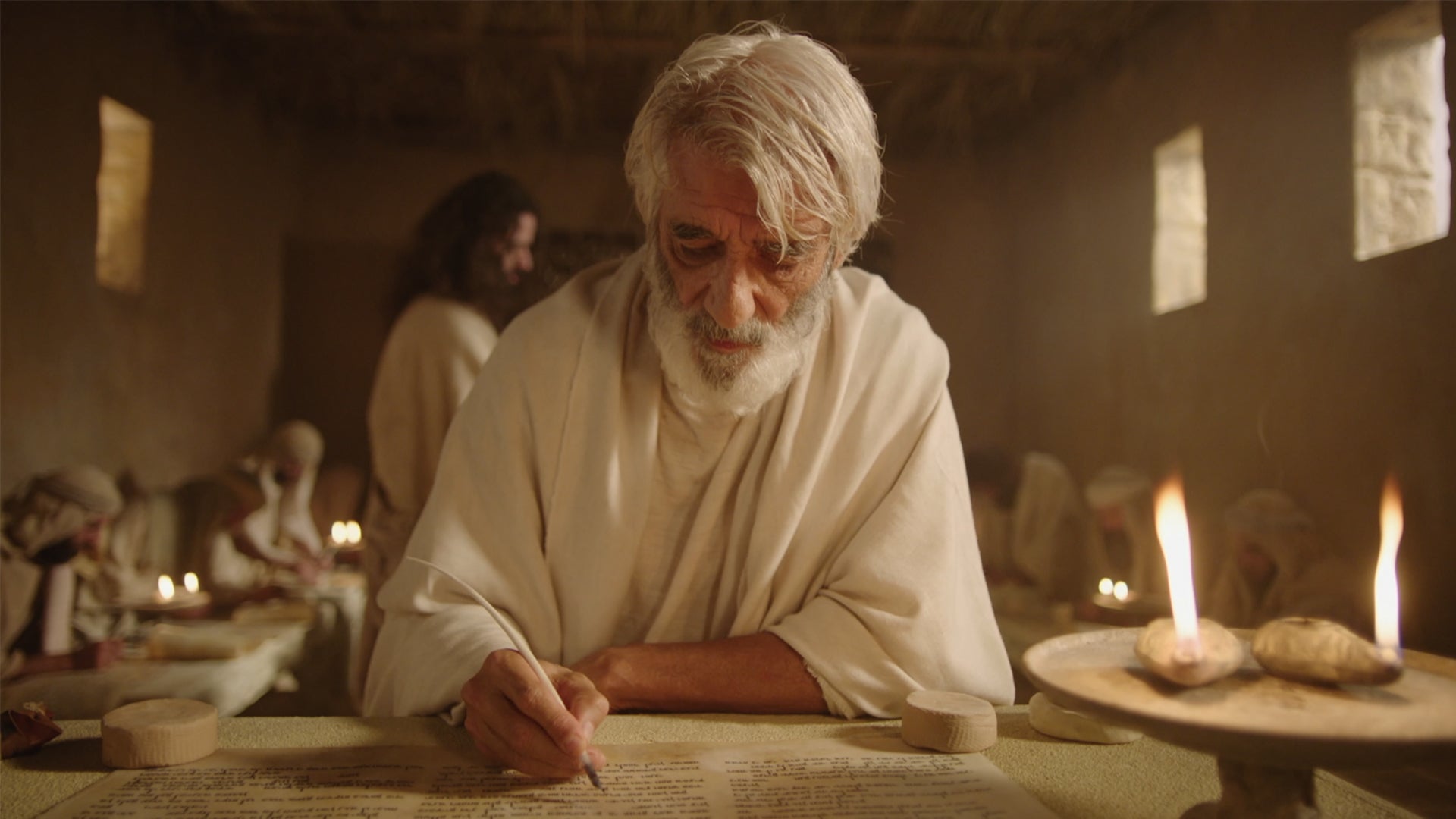Director of “Oracles of God” Discusses First Movie Installment
THE ORACLES OF GOD
“What advantage has the Jew? Much in every way! For to them were committed the Oracles of God.” – Romans 3:1-2/
Order your copy of Oracles of God now!
The Oracles of God is a series of feature-length docudramas about the creation and canonization of the Bible. Featuring expert interviews, a cast of hundreds across three continents, and narration by actor Iain Glen (Downton Abbey, Game of Thrones), the project follows the history and archaeology behind the best-selling book of all-time. CBN Films is planning four parts:
- The Story of the Old Testament (now available)
- The New Testament (filming Summer 2023, release tentatively scheduled for Fall 2024)
- The Canon (Fall 2025)
- The Manuscripts (Fall 2026)
THE OLDEST WRITTEN LANGUAGE
The Bible, spanning 1,500 years and written in multiple languages by various authors, is believed to be guided by the Holy Spirit to convey God’s truth on theology, history, and ethics.
The Hebrew Bible, known as the Old Testament, consists of three sections:
• The Law: The first five books, also called the Torah/Pentateuch.
• The Prophets: Including Joshua, Isaiah, Ezekiel, Jeremiah, and more.
• The Writings: Wisdom Literature containing Psalms, Proverbs, Job, etc.
Moses is traditionally credited as the author of the Law, with evidence supporting his familiarity with the world’s first alphabet. However, Moses couldn’t have been the sole author, as his death is recorded. It is likely the Torah originated with Moses, with later editors adding their own contributions.
Around 1000 BCE, during King David’s time, the Torah and Hebrew traditions were compiled into book form. Scribes recorded the songs of David, including many Psalms attributed to him. King Hezekiah continued editing and compiling sacred texts around 800 BCE.
The world’s oldest biblical text, dating to this period, contains the Priestly Benediction found in Numbers 6:24-26:
“May the Lord bless you and keep you…
May the Lord make his face to shine upon you and be gracious to you.
May the Lord lift up his countenance upon you and give you peace.”
In 587 BCE, the Babylonian king Nebuchadnezzar exiled the Hebrews to Babylon. During the exile, scribes copied manuscripts extensively due to the availability of materials.
After 70 years, the Jewish people were allowed to return from exile. Ezra, a skilled scribe, copied the Torah and collected historical, prophetic, and other writings. Ezra aimed to revive Hebrew language, customs, and knowledge of the laws.
THE SEPTUAGINT
The Torah was translated into Greek in the 3rd century BCE, known as the Septuagint (LXX). It became the Bible for Jews outside the Holy Land and was often quoted in the New Testament. The Greek Orthodox Church still uses the LXX.
And while the Septuagint was probably the biggest translation job ever undertaken in the world, it brings up the question about accuracy. No translation is ever completely accurate, but a scholars will note that a word-for-word translation wasn’t necessarily the goal of the Septuagint project. Some parts are, in fact, very literal and close to the original Hebrew as could be rendered into the Greek. Others have been paraphrased to make the Hebrew text more intelligible or understandable. Scholars will also point out that the first Christians believed that the Septuagint was an accurate and faithful representation of what was said and what was meant in the original texts.
THE DEAD SEA SCROLLS
In 1947, Bedouin shepherds discovered scrolls and fragments in Qumran caves. The Dead Sea Scrolls, dating to the 1st century BCE and 1st century AD, provide insights into Jewish beliefs during Jesus’ time. Comparisons with later Biblical manuscripts reveal remarkable similarities, indicating the accurate preservation of language.
The authors of the Dead Sea Scrolls formed a community in Qumran. Every letter and word in a scroll was counted, allowing up to three mistakes per page. Failure to correct them led to burning the entire manuscript.
Despite Roman campaigns against the Jews, the Dead Sea Scrolls survived while other artifacts were lost.
The discovery began with shepherds selling fragments to a shopkeeper. Professor Sukenik, an archaeologist, recognized their significance in 1947, coinciding with the UN vote for Israel’s independence. His son later remarked, “It’s as if these manuscripts had been waiting in caves for two thousand years, since the destruction of Israel’s independence, until the people of Israel had returned to their home and regained their freedom.”
Order your copy of Oracles of God now!
For more information regarding Oracles of God please visit www.cbnfilms.com.
For all the latest entertainment News Click Here

